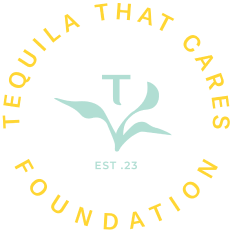Tequila’s Industrial Revolution
The hidden use of chemical additives in tequila has raised alarms among tequila enthusiasts due to lack of transparency and concerns that a growing consumer base won’t know what good tequila is supposed to taste like. But additives are masking an even more serious problem—the industrialization of tequila toward a mass-produced product maximizing efficiency at the expense of quality. The resulting spirit is soulless and devoid of natural flavor or character—often called AgaVodka. Additives are then used to transform a neutral or harsh distillate into something palatable.
Tequila’s new mechanical beast is hungry, at times ravishing crops by harvesting underripe agave and preventing sustainable reproduction. And it doesn’t stop there, the industrial revolution is also erasing tequila’s history and traditions in the name of profits. Are we headed toward an apocalyptic future, or can the industry be saved from itself?
There’s enough blame to go around here. Consumers often purchase the cheapest tequila for cocktails or shots, and price sensitivity is a clear driver of industrial efficiency. Marketing is also to blame, as celebrities and big-brand budgets use their reach to push tequila at elevated prices despite inferior production methods.
There’s no more imposing symbol for the industrialization of tequila than the diffuser. This massive machine power washes raw agave to extract the sugars from the fibers, then attempts to “cook” the agave by boiling, pressure steaming, or chemically using hydrochloric acid (the same acid used to remove rust from steel). It has essentially reversed the traditional process of cooking agave and then extracting its delicious juices, and instead rips apart the agave first and then cooks it on the cheap. The diffuser is far more efficient at extracting the sugars than crushing by stone tahona or even mechanical roller mill, however it also extracts the bitter bits of the agave which lead to an unpleasant taste.
On one hand you can slow cook in a stone/brick oven or autoclave and then crush the soft caramelized agave to extract the sweet juice, or on the other hand you can quicky pressure wash tough raw agave and then chemically cook it with acid. One is going to deliver a better flavor, the other profit margin. I enjoy good barbeque, and to me this is like the choice between slow smoking pork shoulder to create beautiful pulled pork with delicious bark, versus cooking a hunk of pork in the microwave then ripping the tough meat apart and dousing it with barbeque sauce so it can be choked down. You know how important that barbeque sauce is, well that’s what additives are doing for industrial tequila—covering it up.
Is the diffuser machine evil? No. Just like any tool, it’s what you do with it that matters. In fact, the diffuser is an inevitable industrial advancement delivering impressive efficiency that business demands at scale—particularly for cocktails. Standing next to one of these massive machines and comparing it to a stone tahona feels like comparing the Jetsons to the Flintstones. A diffuser doesn’t need be the worst of the future. Instead of being the original Terminator, it can can be the Terminator from T2 Judgement Day that’s here to help (in its own way). This tequila machine doesn’t require young agave. It doesn’t demand that acid be used to chemically cook the fibers. There is no requirement to deliver a distillate devoid of all flavor and then cover it up with chemical additives. There are so many decisions to be made in the production of tequila. I’d argue the people making these production decisions are far more influential to the quality of the resulting tequila than any one piece of equipment is.
So don’t throw out the baby with the agave water. I’ve personally tasted diffuser-made tequila confirmed additive free that would work well in cocktails. I’ve seen distilleries that have diffusers on premise along with more traditional production methods that do have the integrity to be transparent about which brands produced there employ each method. The machine isn’t the problem itself, but a lack of transparency from those who use such equipment can be. Unfortunately, most consumers just don’t have the time to visit distilleries, establish relationships with producers, and create a bond of trust.
We should all be concerned that agave is often being harvested far too young to feed industrial machines, and this can have a ripple effect that harms the sustainability of agave farming while also preventing smaller producers from accessing agave that has been allowed to mature.
Perhaps there is a way to leverage the efficiency of industrialization without all the pitfalls, and we should want to see that kind of progress. If we aren’t moving forward, we aren’t going anywhere. But until we start demanding higher quality and more transparency, the industry will continue to march onward in the name of scale. Tequila will not only outsell vodka, it risks becoming vodka.
____________________
What can you do?
- Learn how your tequila is made and support the brands who don’t sacrifice quality (Tequila Matchmaker is an amazing resource for this).
- Visit distilleries to see production firsthand.
- Educate your friends that tequila is meant to be sipped and not covered up; that tequila is made from three ingredients but has hundreds of naturally occurring flavors and aromas—cake batter and cotton candy are not among them.
- Pay the extra $2 at a bar to upgrade your cocktail with a better made tequila.
- Demand, seek, and support sustainable tequila production.
